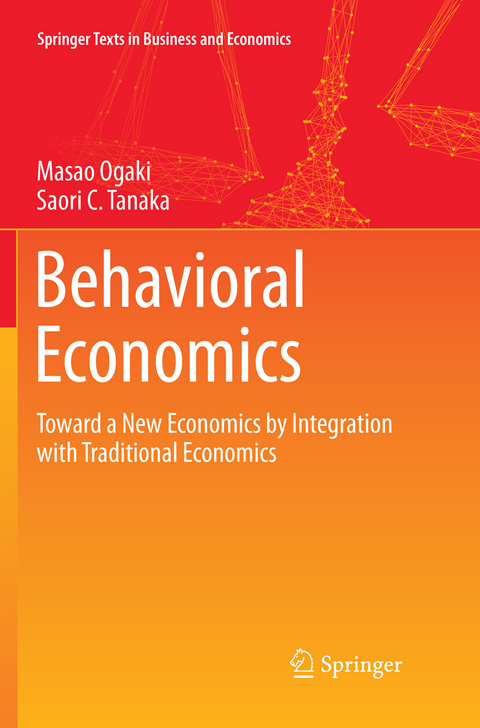
Behavioral Economics
Springer Verlag, Singapore
978-981-13-4878-5 (ISBN)
This book is intended as a textbook for a course in behavioral economics for advanced undergraduate and graduate students who have already learned basic economics. The book will also be useful for introducing behavioral economics to researchers. Unlike some general audience books that discuss behavioral economics, this book does not take a position of completely negating traditional economics. Its position is that both behavioral and traditional economics are tools that have their own uses and limitations. Moreover, this work makes clear that knowledge of traditional economics is a necessary basis to fully understand behavioral economics. Some of the special features compared with other textbooks on behavioral economics are that this volume has full chapters on neuroeconomics, cultural and identity economics, and economics of happiness. These are distinctive subfields of economics that are different from, but closely related to, behavioral economics with many important overlaps with behavioral economics. Neuroeconomics, which is developing fast partly because of technological progress, seeks to understand how the workings of our minds affect our economic decision making. In addition to a full chapter on neuroeconomics, the book provides explanations of findings in neuroeconomics in chapters on prospect theory (a major decision theory of behavioral economics under uncertainty), intertemporal economic behavior, and social preferences (preferences that exhibit concerns for others). Cultural and identity economics seek to explain how cultures and people’s identities affect economic behaviors, and economics of happiness utilizes measures of subjective well-being. There is also a full chapter on behavioral normative economics, which evaluates economic policies based on findings and theories of behavioral economics.
Masao Ogaki is a professor at the Faculty of Economics, Keio University. He graduated from the Department of Economics at Osaka University, Japan, in 1982. In 1988, he obtained his Ph.D. at the University of Chicago. He then taught at the University of Rochester and Ohio State University before joining the faculty of Keio University in 2009. He served as president of the Association of Behavioral Economics and Finance, November 2015 to December 2017), was editor of the Japanese Economic Review (August 2011 to January 2016), and editor of the Journal of Money, Credit, and Banking (September 2003 to August 2009). Saori C. Tanaka is the head of the Department of Neural Computation for Decision-Making of the ATR Brain Information Communication Research Laboratory Group, Kyoto, Japan. She graduated from the Department of Physics at Osaka University, Japan, in 2001. In 2006, she completed her Ph.D. at theNara Institute of Science and Technology, Graduate School of Information Science, Japan. She then worked as a visiting researcher at the California Institute of Technology and an associate professor at the Institute of Social and Economic Research, Osaka University, Japan. Her field of expertise is the study of the brain mechanism of decision making by using noninvasive human brain function measurement and computational theory of decision making.
Part I Behavioral Economics and Neuroeconomics.- 1 What Is Behavioral Economics?.- 2 What Is Neuroeconomics?.- Part II Prospect Theory and Bounded Rationality.- 3 Economic Behavior Under Uncertainty.- 4 Prospect Theory.- 5 Bounded Rationality.- Part III: Time-Discounting and Social Preferences.- 6 Intertemporal Behavior.- 7 Learning Theory and Experiments in Neuroeconomics.- 8 Social Preferences.- 9 Culture and Identity.- 10 Economics of Happiness.- 11 Normative Behavioral Economics.- Index.
| Erscheint lt. Verlag | 9.12.2018 |
|---|---|
| Reihe/Serie | Springer Texts in Business and Economics |
| Zusatzinfo | 25 Illustrations, black and white; XVII, 211 p. 25 illus. |
| Verlagsort | Singapore |
| Sprache | englisch |
| Maße | 155 x 235 mm |
| Themenwelt | Geisteswissenschaften ► Psychologie ► Biopsychologie / Neurowissenschaften |
| Wirtschaft ► Volkswirtschaftslehre ► Mikroökonomie | |
| ISBN-10 | 981-13-4878-2 / 9811348782 |
| ISBN-13 | 978-981-13-4878-5 / 9789811348785 |
| Zustand | Neuware |
| Haben Sie eine Frage zum Produkt? |
aus dem Bereich


